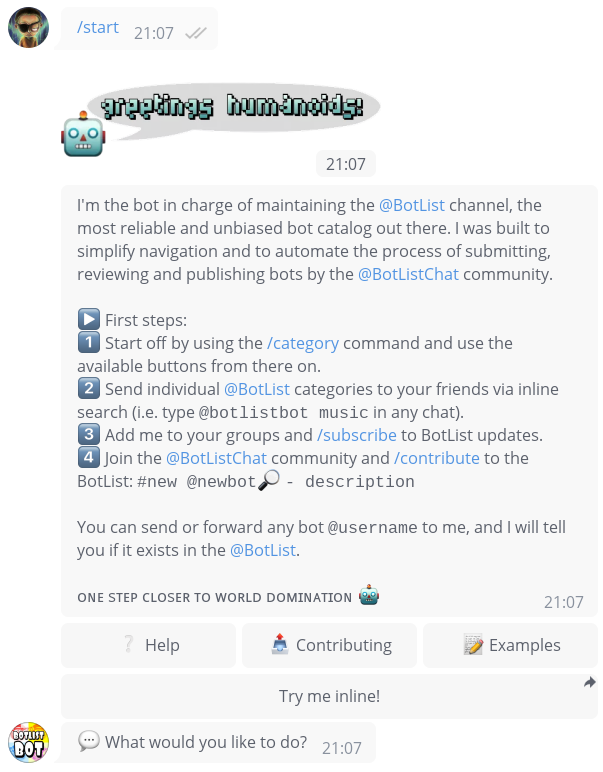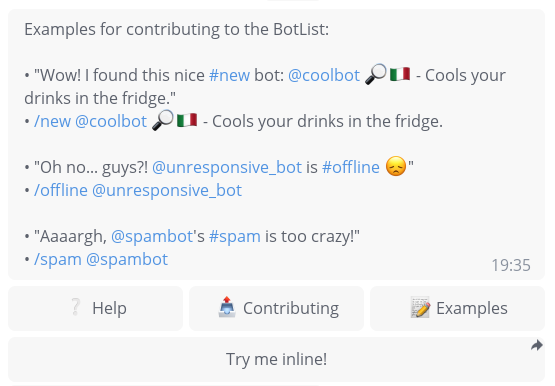Getting Started
You can follow along by running the example (README)
Setup
Suppose we want to write integration tests for @BotListBot by sending it a couple of messages and checking that it responds the way it should.
After configuring a Pyrogram user client,
let's start by creating a BotController:
from tgintegration import BotController
controller = BotController(
peer="@BotListBot", # The bot under test is https://t.me/BotListBot 🤖
client=client, # This assumes you already have a Pyrogram user client available
max_wait=8, # Maximum timeout for responses (optional)
wait_consecutive=2, # Minimum time to wait for more/consecutive messages (optional)
raise_no_response=True, # Raise `InvalidResponseError` when no response is received (defaults to True)
global_action_delay=2.5 # Choosing a rather high delay so we can observe what's happening (optional)
)
await controller.clear_chat() # Start with a blank screen (⚠️)
Now, let's send /start to the bot and wait until exactly three messages have been received by using the asynchronous collect context manager:
async with controller.collect(count=3) as response:
await controller.send_command("start")
assert response.num_messages == 3 # Three messages received, bundled under a `Response` object
assert response.messages[0].sticker # The first message is a sticker
The result should look like this:

Examining the buttons in the response...
# Get first (and only) inline keyboard from the replies
inline_keyboard = response.inline_keyboards[0]
# Three buttons in the first row
assert len(inline_keyboard.rows[0]) == 3
We can also press the inline keyboard buttons, for example based on a regular expression:
examples = await inline_keyboard.click(pattern=r".*Examples")
As the bot edits the message, .click() automatically listens for "message edited" updates and returns
the new state as another Response.

assert "Examples for contributing to the BotList" in examples.full_text
Error handling
So what happens when we send an invalid query or the peer fails to respond?
The following instruction will raise an InvalidResponseError after controller.max_wait seconds.
This is because we passed raise_no_response=True during controller initialization.
try:
async with controller.collect():
await controller.send_command("ayylmao")
except InvalidResponseError:
pass # OK
Let's explicitly set raise_ to False so that no exception occurs:
async with controller.collect(raise_=False) as response:
await client.send_message(controller.peer_id, "Henlo Fren")
In this case, tgintegration will simply emit a warning, but you can still assert
that no response has been received by using the is_empty property:
assert response.is_empty